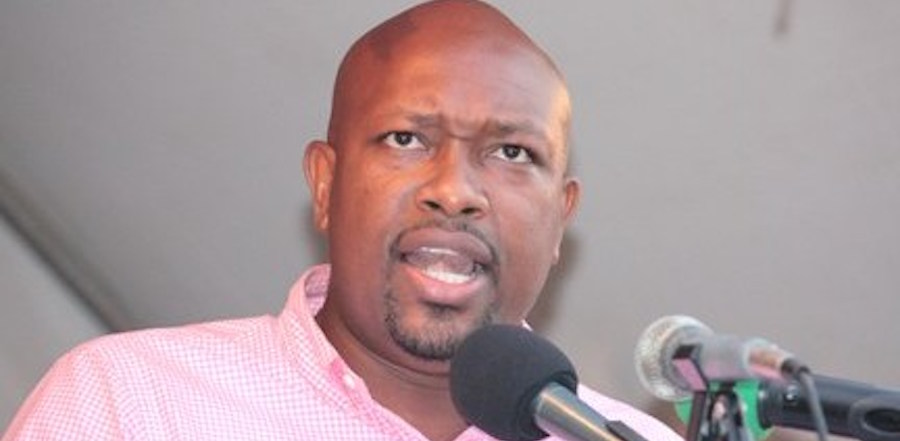Just days after officially launching its medical marijuana industry, St Vincent and the Grenadines’ minister of agriculture Saboto Caesar has revealed that Barbadians are showing substantial interest in investing in the burgeoning sector there.
At the same time the minister is making it clear that even though St Vincent has gotten out of the blocks first, the Caribbean is essentially running on the same team, as it relates to maximizing the earning potential from the plant, which is transitioning from an illegal drug to a mainstream cash crop.
With eight cooperatives, representing 150 growers, as well as 12 regional and international stakeholders, the Vincentian minister revealed that some Barbadians have recognised the business potential and are just as eager to get in on the ground.
“We have seen a trend, this includes the OECS and Barbados, where persons are showing significant and very keen interest in the industry,” Caesar said.
This development occurs at a time when Barbados is on the verge of embarking on its own medical marijuana industry, pending the requisite legislative framework.
However, Caesar is confident that the interest shown by Barbadians in St Vincent’s medical marijuana sector, does not translate to potential investment being pulled from the soon-to-be established medical cannabis industry in Barbados.
In fact, he is of the view that the teething problems that will inevitably come with developing a new sector, will serve as lessons for fellow Caribbean countries seeking to get their piece of the multi-billion-dollar industry. He argued that Barbadian investors would likely use the knowledge and experience gained in St Vincent to build out the sector at home. He also expressed confidence that the St Vincent and the Grenadines model is going to be an “excellent one to follow” and therefore there would be no need to re-invent the wheel when Barbados begins its industry.
“What will happen is this. Persons will come to St Vincent and the Grenadines, they will participate in the project and when it opens at home they would have all of the factors of production and they would use the knowledge garnered in St Vincent and do their investments at home. So, I don’t see the fact that persons may choose to participate in Jamaica, Antigua or St Vincent because they are coming earlier in the game, as detrimental at all to the industry at home in Barbados,” Caesar explained.
St. Vincent and the Grenadines was able to launch its medical marijuana industry earlier this month, the culmination of a process which began 20 months ago. Thus far the majority of people issued licences to grow marijuana are those who have been long-standing cultivators of the crop during its prohibited years.
In his interview with Barbados TODAY, Caesar revealed that the St Vincent and the Grenadines’ government has successfully gained buy-in from the public, despite longstanding social concerns surrounding the recreational use of the drug. He noted that openness and transparency were key to accomplishing this.
As Barbados now seeks to convince its population to go the route of the medical marijuana sector, the Vincentian agriculture minister, endorsed the Mia Mottley administration’s strategy of not conflating the medical debate with the recreational one.
“We had a very clear policy outline from the beginning as to where our markers were going to be. From the get-go, we realised that international law only permits the use of cannabis for scientific research or for medicinal purposes, said Caesar, who is an attorney-at-law.
He further noted, “We did not have to go into a very long discussion and debate because just like what Barbados is doing, we did not tie up the recreational use of cannabis in the discussion. If we had gone the route of including recreational use in the debate then we would have had to engage international legal experts in order to go outside the international parameters, which would have made the conversation more winding and longer.”
However, he made it clear that St Vincent’s speed in getting to this stage, was due to the fact that the Ralph Gonsalves administration treated the establishment of the legislative framework as an everyday task. Additionally, St. Vincent’s long history of marijuana cultivation also played a major role.
“We were fortunate to have a young legal mind, who had experience in drafting similar legislation in Jamaica and she came up with the first draft. We also worked with international experts in this [legal] field from the United States, Canada, Europe and Columbia. This was really an everyday job. It wasn’t something that you were able to do part-time. I think that this sort of dedication, added to the fact that we have a long history of producing cannabis, really made it a lot easier for us to cover it in that short space of time.”
colvillemounsey@barbadostoday.bb




